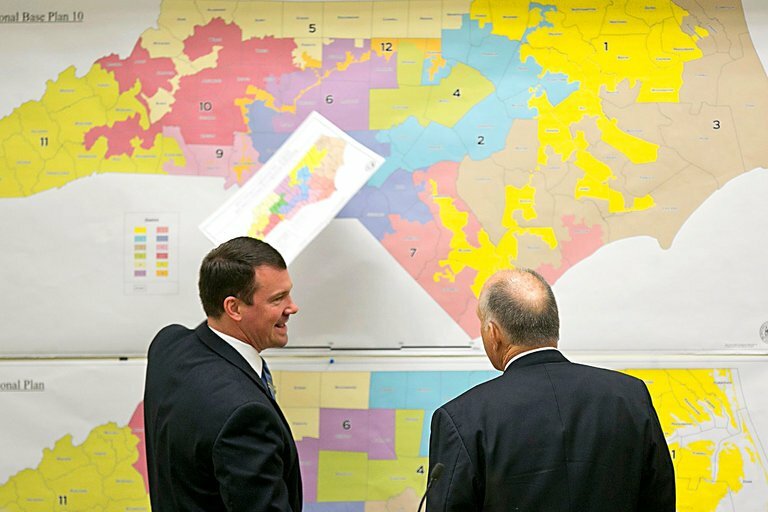Princeton University professor Sam Wang has landed in a bit of hot water:
Princeton University has launched an internal investigation of Sam Wang, the controversial head of the Princeton Gerrymandering Project, after members of his staff alleged that he was manipulating data to match his personal agenda, and for mistreating people who worked for him.
In addition to complaints that Wang created a toxic work environment that included retaliatory acts and job threats, and a possible Title IX violation, three individuals directly connected to the Princeton Gerrymandering Project confirmed that the university is also investigating allegations of research misconduct against the neuroscience professor-turned-redistricting activist. The New Jersey Globe is withholding the names of the three individuals, who fear that they could become the target of further retribution by Wang.
Complaints were filed before and during the time Wang was serving as the advisor to the independent congressional redistricting tiebreaker.
While working on New Jersey redistricting, Wang was accused of manipulating data to achieve the outcome he wanted, the three individuals confirmed.
“He’d fudge the numbers to get his way,” said one individual. “He had an agenda. He was good at hiding it when he had to, but it was clear Sam wanted Democrats to win and he was willing to cheat to make that happen.”
So, why should we care about the misdeeds of some professor up north? Because this is not Wang’s first ride on the sleaze train and it has made several stops in North Carolina.
Wang’s history of unethical behavior in North Carolina
Most recently, Wang illegally communicated with experts for the plaintiffs in the redistricting case earlier this year:
However, it’s been uncovered that two of the four assistants to the professors, Sam Wang of Princeton and Tyler Jarvis of BYU, engaged in “substantive ex parte communications” with the plaintiffs’ experts in the case. “Ex parte” is a legal term meaning that only one side of a legal dispute participated in the communication. The legislative defendants were informed on Sunday, Feb. 20, that the illegal communications also occurred on Friday, Feb. 18th.
Wang’s subsequent work helped cause court-appointed special masters to reject the General Assembly’s remedial congressional map and replace it with one they drew.
We already knew that Wang and his Princeton Gerrymandering Project earned an “F” for transparency and nonpartisanship. We already knew that Wang wanted the media to believe that the methods he used to grade redistricting plans were based on objective criteria. However, the main criteria for those grades were arbitrary and favored Democrats:
In their own words, their primary measure for that category is “an aspirational view of fairness” (emphasis added). They “take the normative stance” (an academic way of saying it is their opinion) that Democrats and Republicans “should be treated symmetrically.”
While the ensemble method accounts for a state’s political geography, their “aspirational view of fairness” does not. This view (“aspirational” means a strong desire for something) introduces analysts’ personal biases and preferences into their map grades.
To make matters worse, by their own admission, their arbitrary “aspirational view of fairness” carries more weight than any of the objective measures they employ
(I noted in that article that I assumed that there were “no biases in the algorithm” Wang and his interns used in the supposedly objective part of his analysis. That was clearly too trusting on my part and I withdraw that assumption.)
Wang also went down the “lies, damned lies, and statistics” road in a court brief in 2019. I noted in response that “you simply can’t get what Wang wants without intentionally manipulating districts to advantage one political party.”
So, we knew that Wang was well versed in using data to mislead people for his own political ends long before he got in trouble with Princeton University for allegedly cooking the books in New Jersey. It is a shame that the court either did not know or did not care when they hired him to help them evaluate redistricting maps here.
UPDATE: Princeton university denies that Wang manipulated data that he presented to the New Jersey Redistricting Commission, although their investigation continues.


